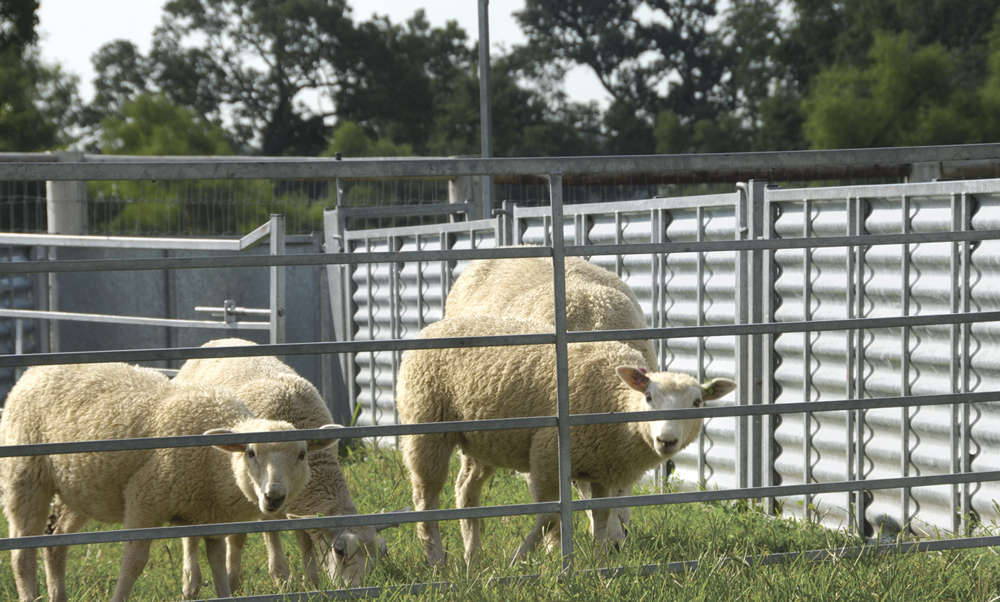Collecting fecal samples for analysis is a dirty but necessary job. An analysis is used to identify and determine the number of parasite eggs present in an animal’s feces. Higher counts indicate a higher worm burden. The decision of whether or not to worm and what wormer to use is based on a fecal analysis.
Tools needed:
- Plastic sealable baggies (such as Ziploc®)
- Disposable/plastic spoon
- Cooler
- Permanent marker
- Fecal loop (if available)
To test an individual sheep:
- Isolate the animal in question (in a pen or corral by itself).
- Wait for the animal to defecate.
- While wearing gloves, spoon a heaping tablespoon into the baggie (from the top portion of the patty).
- Write the name of the group on the baggie (ex. Wool ewes north farm).
- Place the samples into the cooler.
- If the sample is to be sent to a lab or local vet, follow the guidelines supplied by the lab/vet.
Collecting samples from the flock:
If testing a group of less than 100 animals, collect samples from at least 10.
If the group is larger than 100, collect samples from 10% of the group.
- Gather the flock in a corral.
- Wait 10-15 minutes for the ewes to drop fresh samples.
- Collect samples with spoon and insert into baggie.
- Write the name of the group on the baggie (ex. Wool ewes north farm).
- Place the samples into the cooler.
- If the sample is to be sent to a lab or local vet, follow the guidelines supplied by the lab/vet.
Using the fecal loop:
- Restrain the animal to be tested.
- Lubricate the loop and insert the loop into the rectum and swoop to collect fecal material.
- Remove the loop and transfer the contents to a baggie (be sure to clean and sterilize the loop before using again).
- Write the name of the group on the baggie (ex. Wool ewes north farm).
- Place the samples into the cooler.
- If the sample is to be sent to a lab or local vet, follow the guidelines supplied by the lab/vet.
To find a lab that can perform a fecal analysis for you, contact your local veterinarian or extension office.
After analysis, consult your veterinarian for a recommended worming procedure.



